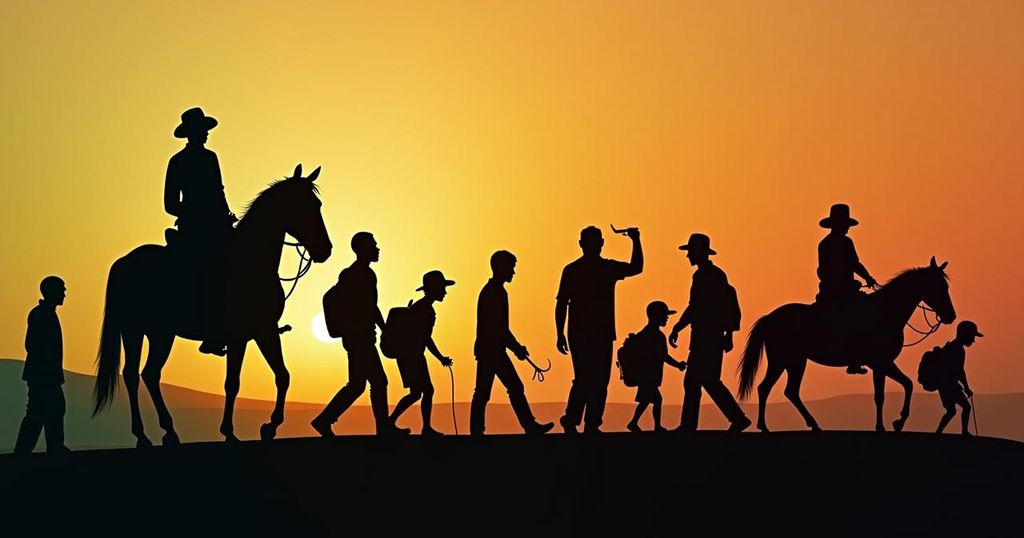2018 was a pivotal year for Eritrea, marked by significant diplomatic breakthroughs including a peace agreement with Ethiopia, renewed relations with Djibouti, and the lifting of UN sanctions. These developments, alongside Eritrea’s election to the UN Human Rights Council, highlighted both the progress and the ongoing challenges the country faces in terms of human rights.
The year 2018 marked a significant turning point for Eritrea, a nation that had long been viewed as isolated prior to the transformative events that took place starting in June of that year. Information Minister Yemane Meskel acknowledged that the country had faced a concerted effort to damage its reputation, yet Eritrea managed to sustain relationships with its development partners. The dynamics shifted dramatically as Eritrea began to play a pivotal diplomatic role within the Horn of Africa, particularly following President Isaias Afwerki’s enhanced engagement with regional leaders. Among the most consequential events of 2018 were the peace agreements and diplomatic efforts that reshaped Eritrea’s relations with its neighbors. In July, Ethiopian Prime Minister Abiy Ahmed’s visit to Asmara culminated in a historic peace and cooperation agreement with President Afwerki, effectively ending a long-standing border dispute. This pivotal agreement opened avenues for cooperation between the populations of the two nations and had a ripple effect across the region, leading to improved relations between Eritrea and Somalia, as well as efforts to resolve lingering disputes with Djibouti. In September, a landmark meeting facilitated by the Saudi government between President Afwerki and Djibouti’s President Ismail Omar Guelleh signified a new era of reconciliation following years of conflict. This was further underscored by Djibouti’s normalization of relations with Eritrea, driven by high-level discussions involving foreign ministers from the region. November saw the United Nations Security Council unanimously vote to lift the long-standing arms embargo and targeted sanctions against Eritrea, a decision that was influenced by Eritrea’s peace overtures towards Ethiopia and Djibouti. This development was celebrated by Eritrea, although the government asserted its claim for compensation regarding sanctions they deemed unjust. In October, Eritrea’s election to the United Nations Human Rights Council garnered mixed reactions. While recognized as a member, the country’s human rights record drew criticism from global observers who questioned its eligibility given the prevalent issues surrounding arbitrary detentions and the suppression of dissent. Finally, a noteworthy event occurred in September when the borders between Eritrea and Ethiopia were reopened, marking a symbolic return to freedom of movement for citizens post-conflict. High-ranking officials from both nations participated in this event at pivotal border points, although subsequent reports indicated that movement across the border faced restrictions. The reopening allowed for limited trade and people exchanges, although it also coincided with a surge of refugees heading into Eritrea. Overall, 2018 was a year that transformed Eritrea’s diplomatic and regional standing, with actions taken during this time continuing to resonate in the following years.
Eritrea’s historical context is essential to understanding the changes that occurred in 2018. For nearly two decades, Eritrea had been embroiled in conflict with Ethiopia, leading to a protracted period of estrangement and reproach from the international community. Citing human rights violations and aggressive policies, the country was often labeled as reclusive. However, in mid-2018, the geopolitical landscape shifted dramatically as Eritrea began to engage in peace talks with Ethiopia and other neighboring nations, thereby initiating a series of diplomatic initiatives that altered its regional standing significantly.
The events of 2018 were watershed moments for Eritrea, transforming the nation’s diplomatic relationships and fostering a climate of potential growth and cooperation across the Horn of Africa. The peace deal with Ethiopia, the revival of relations with Djibouti, and the lifting of UN sanctions collectively signify a new chapter for Eritrea—one defined by a commitment to regional stability and improved international relations, although challenges regarding human rights remain apparent.
Original Source: www.africanews.com







